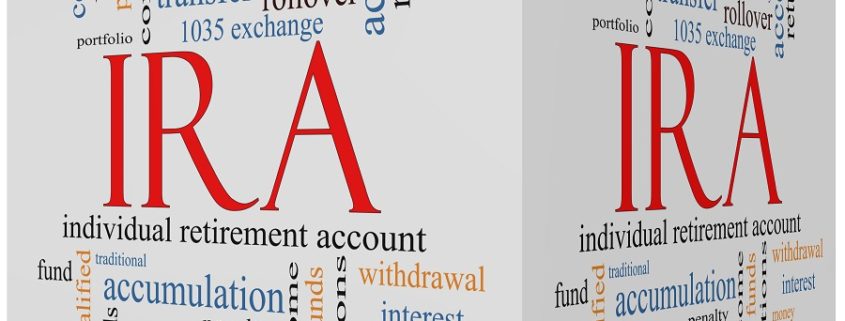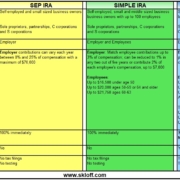Roth IRA Recharacterization – Independent Press

The Independent Press
Business – Skloff Financial Group’s Question of the Month – April 2, 2014
By Aaron Skloff, AIF, CFA, MBA
Q: After reading your March 5, 2014 article on Roth IRA conversions and evaluating the pros and cons, we are ready to convert our Traditional IRAs. Can we reverse the conversion and its tax implications if the financial markets drop?
The Problem — Values Decline After a Roth IRA Conversion
After evaluating all the pros and cons, you converted your Traditional IRAs to Roth IRAs. The conversion generated taxable income based on the value of your accounts on the day of the conversion. In less than one year’s time, the financial markets drop. Now, you have a tax burden that would have been less had you simply waited until later in the year to convert — hindsight is always 20/20.
For example, on March 1, 2014 you convert $100,000 of assets and generate $30,000 of taxes. By December 2, 2014, the value of the assets has declined to $50,000. In retrospect, if you waited until Dec. 2, 2014 to convert the conversion would have generated only $15,000 of taxes.
Are You Interested in Learning More?
The Solution — Recharacterize Your Roth IRA Conversion
The same way the IRS permits you to convert all or a portion of your Traditional IRAs to Roth IRAs, the IRS also permits you to reverse all or a portion of the conversion through a “recharacterization.” When you recharacterize you reverse the conversion and its full tax implications. Using the example above, the recharacterization would reverse the full $30,000 tax obligation and the assets would be moved from the new Roth IRAs to the original Traditional IRAs.
By shrinking your pre-tax savings IRA savings through Roth IRA conversions you gain the benefit of unnecessary taxes on withdrawals from those pre-tax savings.
You generally can recharacterize your rollover or conversion by October 15 of the following year, regardless of whether you requested an extension to file your tax return. In the example above, the deadline would be October 15, 2015. Re-Converting to a Roth IRA. Ideally, you would reconvert the assets again at their depressed valuation. If only it were that simple. Remember, we are talking about the IRS. You cannot convert, recharacterize, and then reconvert to a Roth IRA within the same tax year. If you convert and then recharacterize, you may not reconvert back to a Roth IRA before the later of:
1. The taxable year following the taxable year in which the amount was initially converted to a Roth IRA or
2. The end of the 30-day period, beginning on the day you recharacterized from the Roth IRA to theTraditional IRA
For example, if you recharacterized a conversion contribution on Dec. 2, 2014, you would not be able to reconvert until January 2, 2015. If you reconvert prior to these limit dates, the reconversion will be classified as a failed conversion by the IRS. If the failure is not corrected it may result in an excess contribution to the Roth IRA.
Reduce Your Headaches. If your Traditional IRA holds very volatile securities, consider converting just those securities into their own Roth IRAs. In the event those securities decline in value it will reduce your headaches if you choose to recharacterize just those Roth IRAs. In the event those securities increase in value you do not have to do anything. For example, let’s say you have a Traditional IRA that holds one stock, Google. As Google is a very volatile stock, consider converting that Traditional IRA into its own Roth IRA. If Google drops, recharacterize the Roth IRA that holds solely Google. If it rises, do nothing.
Action Step: Work Closely with Your CPA and Registered Investment Adviser
Work closely with your CPA and Registered Investment Adviser (RIA), when considering Roth IRA conversions and/or recharacterizations.
Conversions and recharacterizations can have significant impacts on your income and your estate taxes.
Aaron Skloff, Accredited Investment Fiduciary (AIF), Chartered Financial Analyst (CFA), Master of Business Administration (MBA) is CEO of Skloff Financial Group, a Registered Investment Advisory firm specializing in financial planning, investment management and benefits for small to middle sized companies. He can be contacted at www.skloff.com or 908-464-3060.












